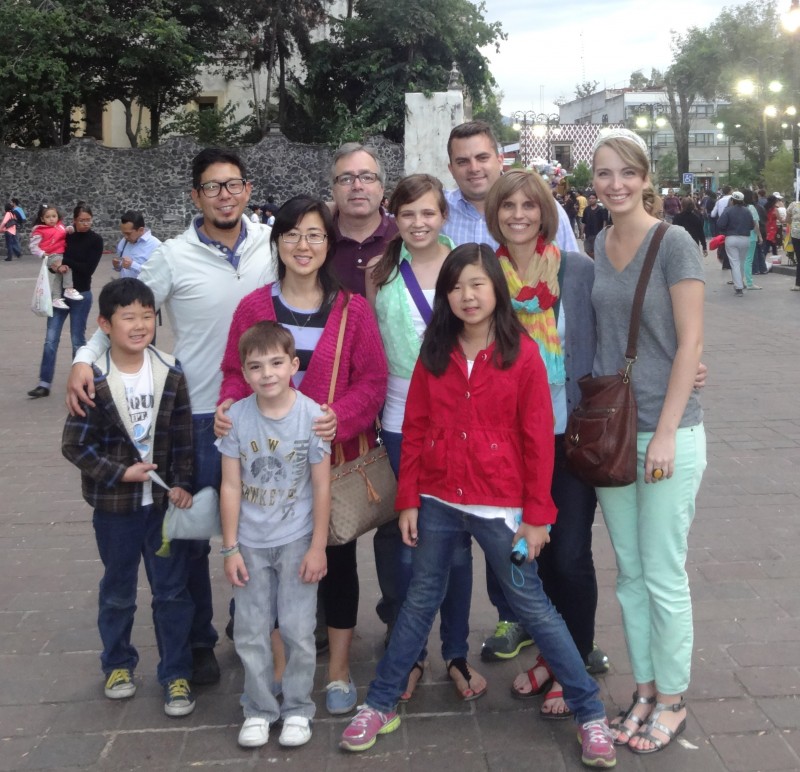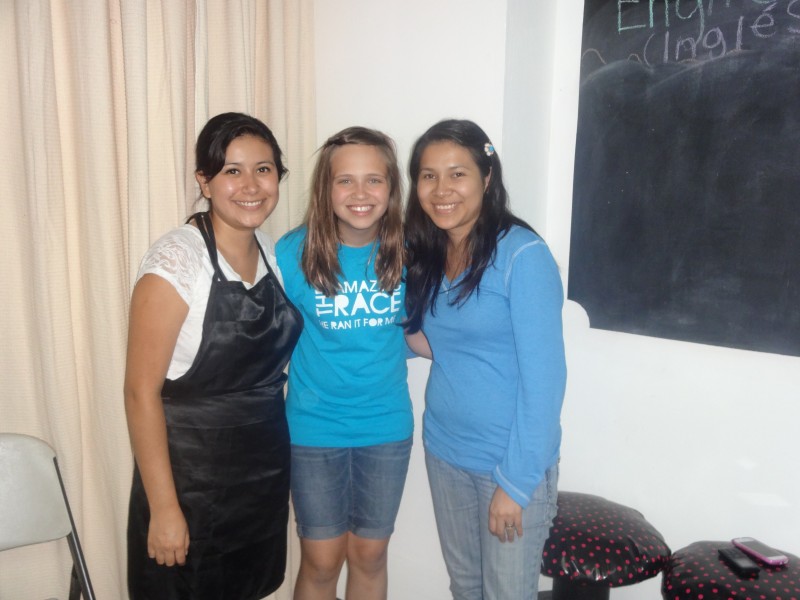VJN Spotlight: How Des Moines Vineyard Fights Trafficking through Partnership
This week, VJN picks up on our ongoing “Spotlight” series of interviewing Vineyard pastors and leaders–particularly those who are responding to human trafficking, poverty, and/or the environment within their own communities and on a global level. Kathy Maskell interviews Becky Waugaman of the Des Moines Vineyard in Des Moines, IA.
Becky shares her story of traveling with her daughter to their church’s missions partnership with Josh and Dania Harder in Vereda, Mexico City. In the spirit of partnership, they had the opportunity to join with the Vereda Vineyard’s ongoing work with El Pozo de Vida (The Well of Life), which operates a refuge home and outreach center in the largest prostitution district in Latin America.

KM: So Becky, tell us about how you started this journey?
BW: I was rescued by Jesus at a young age, and am giving my life so others can be too. I serve as the Welcome Coordinator and Director of Children’s Ministries at Vineyard Church of Des Moines. Last fall, my pastors asked if I’d consider taking a ministry trip with my teenage daughter to our sister church in Mexico City, Vereda. As a dedicated “sender” of many people on different missions trips over the years, their idea really took me by surprise. Not that I was opposed to going, missions work had just never been on my radar. I had never even been out of the country, other than a visit to Canada years ago.
So, I left and considered. I began to pray and ask the Lord if this is something He would have me do. In a matter of a couple of months, I went back to them and said “No.” I was in the middle of employment transition and just felt like I couldn’t commit to a trip when I didn’t know what my work situation would be. They were supportive with my decision, but I guess Jesus wasn’t completely done with the process. In a matter of a couple more months, during a time of prayer, this Mexico City trip came to my mind along with an encompassing peace. So, I returned to my pastors and said, “You know what – Yes, I think we’re supposed to go on this trip.”
Our trip had one goal – to be a blessing to the leaders and people of Vereda. We talked with them several times, determining what their needs were and how we could best serve them and the people of their city.
KM: I resonate with that experience of Jesus not being “completely done with the process”! So, when exactly did you end up traveling to the Vereda church plant?
BW: In June, our small team boarded our flight and headed south of the border to see what Jesus was up to and how we might be able to work with him. We invested our time in two main ways that week. First, with the leaders (Josh and Dania Harder) and people of the Vineyard Vereda church plant. We had rich conversations, beautiful prayer times, and experienced the amazing fun of international community life. My 12 year old daughter spent hours playing with children and practicing her Spanish.
KM: How did you engage with the anti-trafficking work in Mexico City?
BW: A significant aspect of the trip was our partnership with Benny and Janice Yu and their ministry to those caught in human trafficking. We spent an afternoon in the La Merced, a downtown market which is said to be the largest red light district in Latin American. Not the first place I would consider going, much less take my 12 year old daughter. Our destination that day was a Salon that the Yus had started for prostituting women. We were taken to a room in the back where the stylists shared their stories and mission to befriend and help rescue women out of trafficking. It was an emotional day as I was drawn into stories that could have happened to anyone… to me… to my daughter. Most of these women are deceived and trapped in a web of lies before they even can see what’s really happening.

We spent two days at El Pozo (The Well), a home for girls rescued out of trafficking. By girls, I mean those ages 13 – 18, with the youngest having just recently celebrating her birthday. She came into the home at age 12; the same age as my daughter. Talk about hitting home. I’m sitting at a table painting fingernails and doing crafts with girls that could easily be my daughter’s neighborhood friends and classmates. We shared our favorite songs and movies and giggled our way through Spanish / English translations.
The Well Rescue House, Mexico City from abe park on Vimeo.
On our last afternoon, we had a tea party with cake and ice cream. The girls took the time to share their appreciation for our coming to spend time with them. We took the time to let them know how special and beautiful they were. Our trip was worth every penny to be able to look in their eyes and tell them how loved they were.
These girls and women are not statistics, they are people. They have names. Dreams and hopes. They are like you and me, just caught in the brokenness of a sin-ravaged world.
It’s easy to live disconnected. To be a priest or Levite and walk safely on the other side of the road, keeping our distance from the hurting and broken. I’ve found it’s a sacred calling to walk where it may not be safe, to cross the other side of the world, and share the love and hope of Jesus Christ.
KM: Humanizing this overwhelming is so critical for each of us in getting activated to enact God’s kingdom through the art of true neighborliness! It seems that your posture of starting out through listening to the women’s stories is also key to being able to respond the needs thoughtfully, and with love. Now that you’re back, how is your “globalized” perspective shaping and informing your anti-trafficking work at home?
BW: On the “home front”, our church has a Streetlights Ministry that focuses on addressing trafficking right here in Iowa and our city of Des Moines. While I haven’t served actively on the team, I support their work in prayer and am amazed at what God is bringing to light and the connections that have been made with people. Jesus loves people and His search and rescue mission is happening everywhere!
KM: How do you see partnership as part of the way forward in freeing modern-day slaves?
BW: I believe continuing a partnership with The Well is important on two levels. First, trafficking is a network and it is an international network. The more those of us who are fighting it can be connected, the better our ability to rescue people. We can learn from each other, and share support and resources. On a very practical level, in a matter of years Caucasians will be the minority in the U.S. It is essential we become educated on different cultures and languages so we can be able to minister Jesus’ love to all. Sending teams to regularly visit The Well and receiving teams from their church to our city would be a simple way to create an exchange of ideas and ministry.
